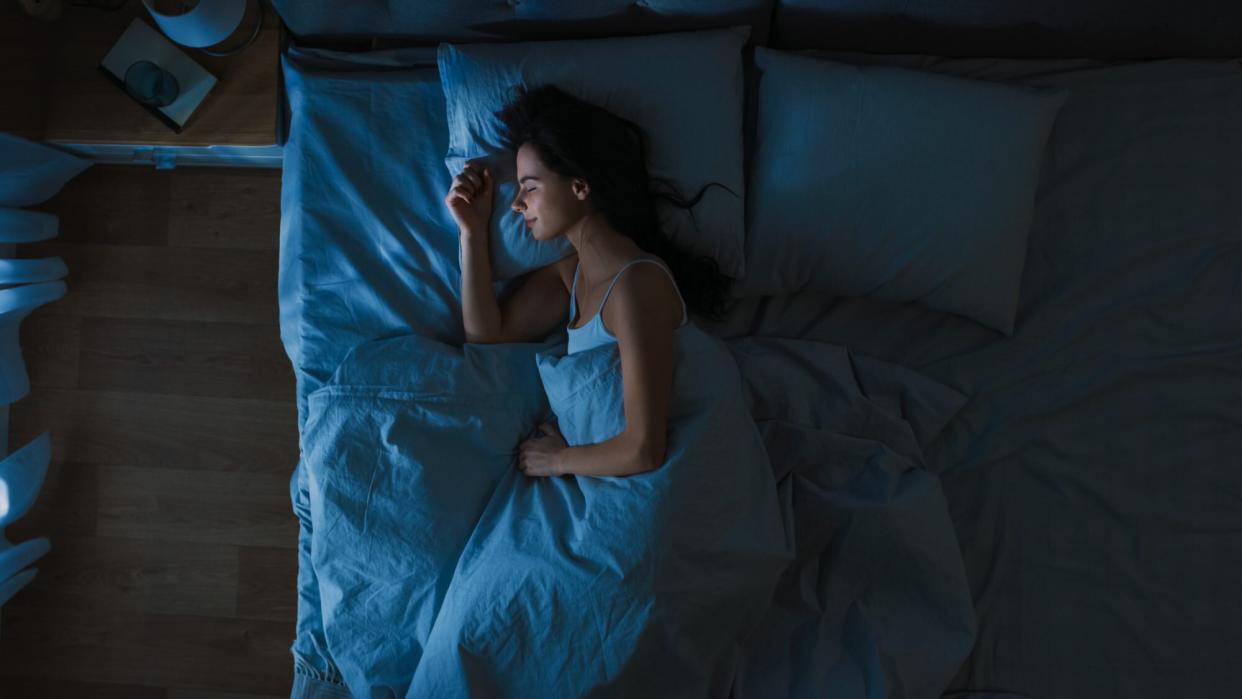New Research Says Sleeping with Even a Little Bit of Light May Increase Your Risk of Heart Disease and Diabetes

gorodenkoff / Getty Images
If you enjoy waking up to sunlight streaming through your curtains or find comfort in being able to see the glow of the stars and moon outside while you fall asleep, you may want to reconsider your sleep setup. A new study conducted by researchers from Northwestern University and published in the journal Proceedings of the National Academy of Sciences found that even a small amount of light exposure while you sleep increases the risk of heart disease and diabetes.
What's the connection? Scientists say when there's light in the room, your heart rate rises and your body isn't able to adequately rest. What's more, even moderate ambient lighting during nighttime sleep harms cardiovascular function and increases insulin resistance compared to sleeping in a dimly lit room. "The results from this study demonstrate that just a single night of exposure to moderate room lighting during sleep can impair glucose and cardiovascular regulation, which are risk factors for heart disease, diabetes and metabolic syndrome," says senior study author Dr. Phyllis Zee in a statement. "It's important for people to avoid or minimize the amount of light exposure during sleep."
Related: Sleep Deprivation Does Bad Things to Your Blood Sugar
Research already suggests that daytime light exposure increases heart rate by activating the sympathetic nervous system, which readies your body to take on the day. "Our results indicate that a similar effect is also present when exposure to light occurs during nighttime sleep," Dr. Zee says. Sleeping in a lit room at night activates your autonomic nervous system, which isn't a good thing according to the study authors. Researchers also found that insulin resistance—a process in which muscle, fat, and liver cells don't respond well to insulin—occurred the morning after people slept in a lit room. This causes the pancreas to make more insulin, causing your blood sugar to rise over time.
To obtain their findings, the researchers tested the effects of sleeping with moderate light compared to dim light in study participants over one night. They found that the body went into a higher alert state when exposed to moderate light, causing the heart rate to increase as well as the force with which the heart contracts and sends blood to other parts of the body. "These findings are important particularly for those living in modern societies where exposure to indoor and outdoor nighttime light is increasingly widespread," Zee says. "If you're able to see things really well, it's probably too light." Researchers recommend not turning on lights while you sleep, avoid using white or blue light, and use blackout curtains if you can't control the outdoor light.

